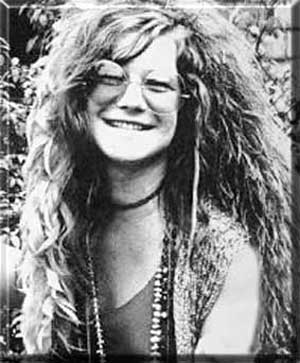But the rock world still has unused umlaut potential. For example, Janis Joplin could've written her first name as Jänis and at least 5 million people would find it hilarious - namely, jänis means hare in Finnish.
For a long time, I found it so weird that somebody would be called Janis. I only associated it with jänis, and only recently it dawned on me that it might have something to do with Janice.
My surname, Hölttä, has umlauts on its own, too. Both ä and ö are letters in the German alphabet, but still my name gets misspelled a lot in Germany. The most common misspelling is "Höllta", which I object for two reasons. Reason one, it brings the name closer to the German word for hell (Hölle). Reason two, it breaks the vowel harmony. Let me explain...
In Finnish, we have a thing called vowel harmony. It means that a, o, and u cannot occur in the same word as ä, ö and y. E and i can occur with both kinds of vowels. So, if you have used a in the first syllable of a word, there's no way you can use ä, ö or y in the next. Suffixes and such obey the harmony too, for example, "talo + ssa" (in a house) and "metsä + ssä" (in the woods).
Because a colleague of mine, Herr Doktor E., objects this notion, I need to specify that vowel harmony applies to the parts of compound words separately. For example, you can have a word like "herätyskello" (alarm clock) which consists of "herätys" (wake up) and "kello" (clock) and it's harmonic enough for our purposes. I'm not going to tell him that there is one exception to vowel harmony, namely "tällainen", which has probably evolved from "tämän lainen" (literally "this-alike").
The Estonian language is very close to Finnish, but doesn't obey vowel harmony. That's why Estonian sounds funny to us Finns. A bit like Dutch sounds funny to Germans.
Let's backtrack to my surname. It has been unscientifically proven that people whose names are closer to the beginning of the alphabet are more successful in life. And I remember hearing about a tech company where all the interns' surnames started with A...
When I married and took my husband's surname, I took a step in the wrong direction: my maiden name began with "Ha", and "Hö" is slightly worse. But moving to Germany was clearly a wise choice - in Finnish å, ä, and ö are in the end of the alphabet (so we have a, .., z, å, ä, ö), but in Germany ö is next to o.
Å, by the way, is a Swedish letter which denotes a sound that used to be a, but has shifted towards o due to the vowel shift. It is pronounced as o.
I think vowel shift is a great thing. Germans, of course, wanted to be special, so they did a consonant shift instead.
If Germans need to use German in an environment without umlauts, they tend to replace ä with ae and ö with oe. Finns, subjected to the same conditions, just replace ä with a and ö with o. If you want to guess my e-mail address, this is the key to the success. One exception though: the word "näin" means "I met (somebody)" (literally: "I saw") and the word "nain" means "I fucked (somebody)". In that case, clever Finns transform "näin" to "naein". Three consecutive vowels - beautiful!
There is also a slightly artificial Finnish word, "hääyöaie" (hää - yö - aie), which means "wedding night intention". I'm not going to try to use it a sentence.
The vowel boundaries cause confusion between speakers of different languages. The other day, I used the German word "weniger", and I got back a comment that I should say "weniger" and not "wäniger". I sincerely thought I said "weniger", but the boundary between e and ä doesn't lie in the same place in Finnish and in German. If I carefully say e, it will be perceived as e by Germans, but if I'm sloppy, it will be perceived as ä. And when Hungarians say my name, it sounds as if they were saying Moorja instead of Marja.
There is a rumour that Germans cannot distinguish between the Finnish words "herkkä" (sensitive) and "härkä" (bull). You can try it out yourself! (Use the "listen" button.) And ignore the translation, it is wrong. Correct translation would be "a sensitive bull".





No comments:
Post a Comment